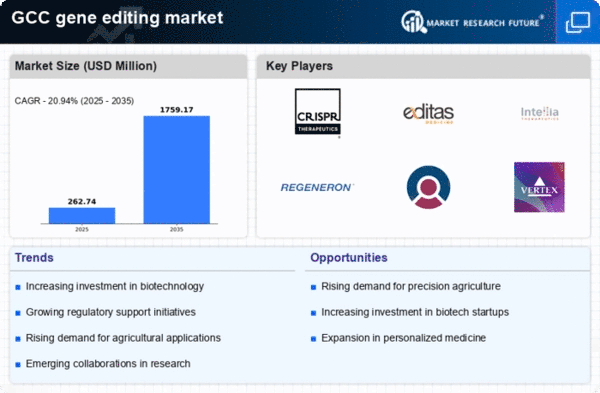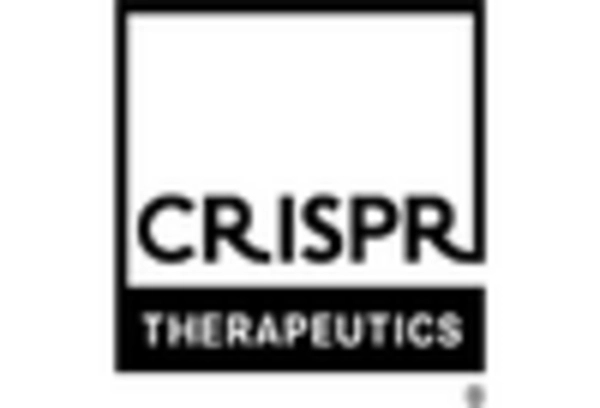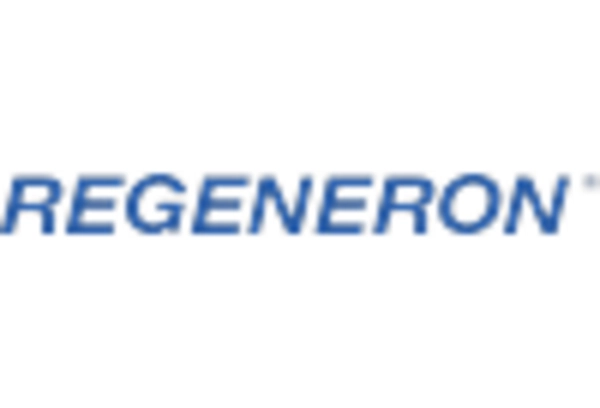Supportive Government Policies
Supportive government policies in the GCC are fostering a conducive environment for the gene editing market. Regulatory frameworks are being developed to facilitate the safe and ethical use of gene editing technologies, which is essential for gaining public trust and encouraging investment. These policies are likely to streamline the approval processes for gene editing applications, thereby accelerating the pace of innovation. The gene editing market stands to benefit from these initiatives, as they create a more favorable landscape for research and commercialization. As a result, the market is expected to witness a growth trajectory that aligns with the increasing governmental support for biotechnology initiatives.
Advancements in CRISPR Technology
Recent advancements in CRISPR technology are playing a pivotal role in shaping the gene editing market. The GCC region is witnessing a rapid evolution in CRISPR applications, which are becoming increasingly accessible to researchers and healthcare professionals. These advancements not only enhance the efficiency and accuracy of gene editing but also reduce associated costs, making it a more viable option for various applications. The gene editing market is expected to benefit from these technological innovations, as they facilitate the development of new therapies and treatments. As a result, the market is projected to grow at a CAGR of approximately 12% over the next five years, indicating a robust future for CRISPR-based solutions.
Rising Demand for Precision Medicine
The gene editing market is experiencing a notable surge in demand for precision medicine, particularly within the GCC region. This trend is driven by an increasing awareness of personalized healthcare solutions that cater to individual genetic profiles. As healthcare providers and patients alike recognize the potential of gene editing technologies to tailor treatments, the market is projected to grow significantly. According to recent estimates, the gene editing market in the GCC could reach a valuation of approximately $1.5 billion by 2027, reflecting a compound annual growth rate (CAGR) of around 15%. This rising demand for precision medicine is likely to propel advancements in gene editing technologies, thereby enhancing the overall landscape of the gene editing market.
Increasing Awareness of Genetic Disorders
The rising awareness of genetic disorders among the population in the GCC is contributing to the growth of the gene editing market. As more individuals become informed about the implications of genetic conditions, there is a growing demand for effective treatments and interventions. This awareness is prompting healthcare providers to explore gene editing technologies as potential solutions for managing and treating genetic disorders. The gene editing market is likely to expand as a result, with estimates suggesting that the market could grow by approximately 10% annually as healthcare systems adapt to meet the needs of patients with genetic conditions.
Growing Investment in Research and Development
Investment in research and development (R&D) within the GCC is significantly influencing the gene editing market. Governments and private entities are increasingly allocating funds to support innovative research initiatives aimed at harnessing the potential of gene editing technologies. This influx of capital is expected to foster collaborations between academic institutions and biotech companies, leading to groundbreaking discoveries and applications. The gene editing market is likely to see a substantial increase in R&D activities, with funding levels projected to rise by over 20% in the coming years. Such investments are crucial for driving innovation and ensuring the GCC remains competitive in the global gene editing landscape.
















